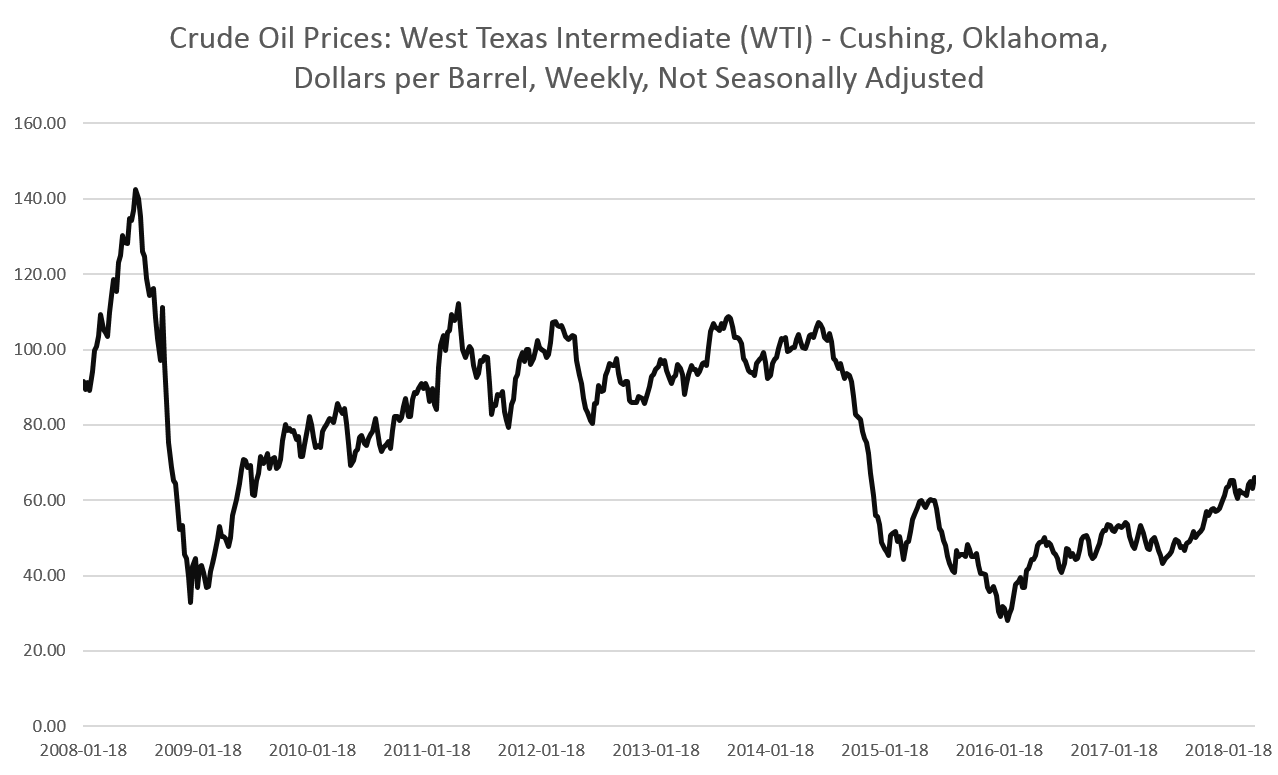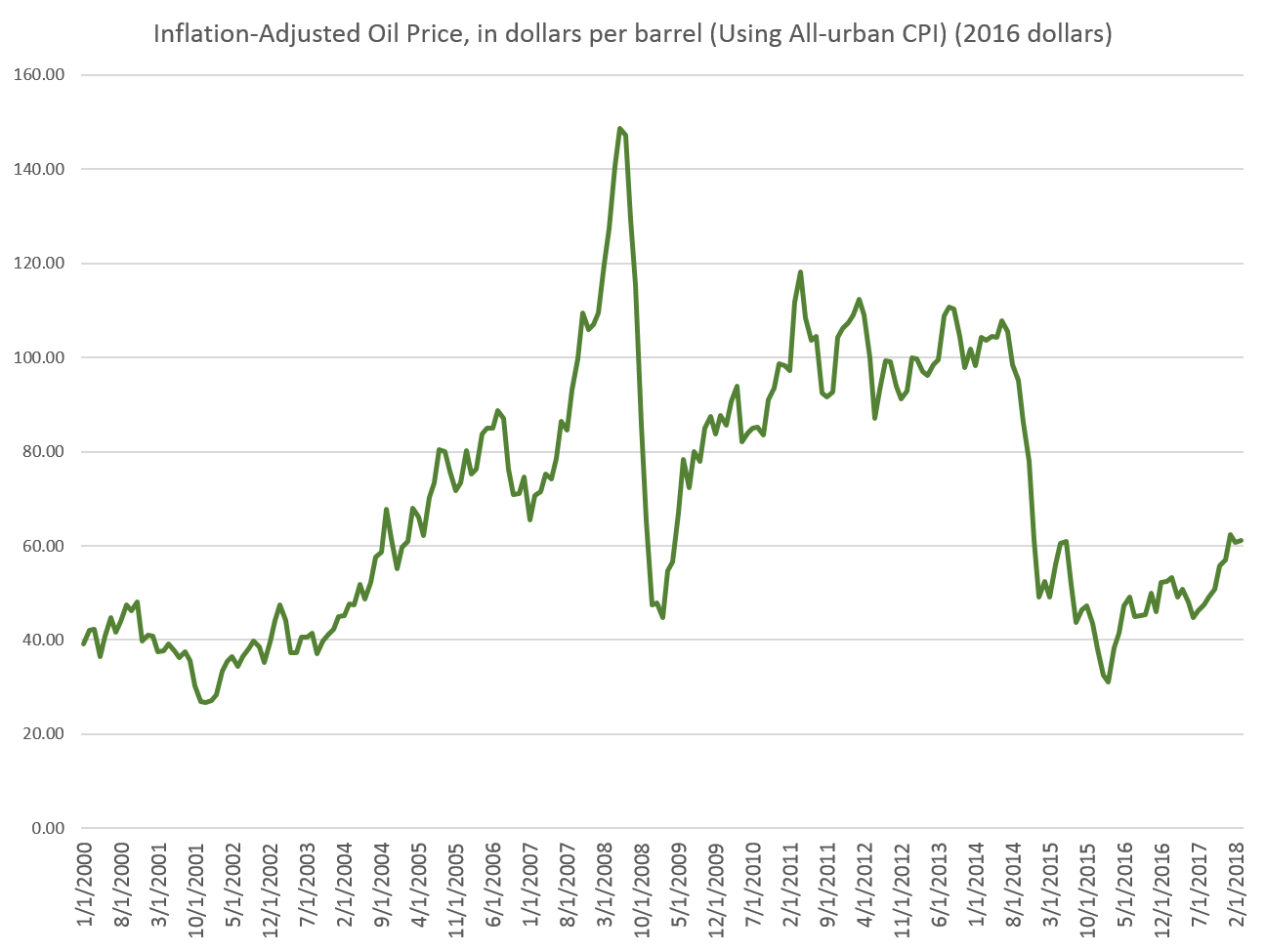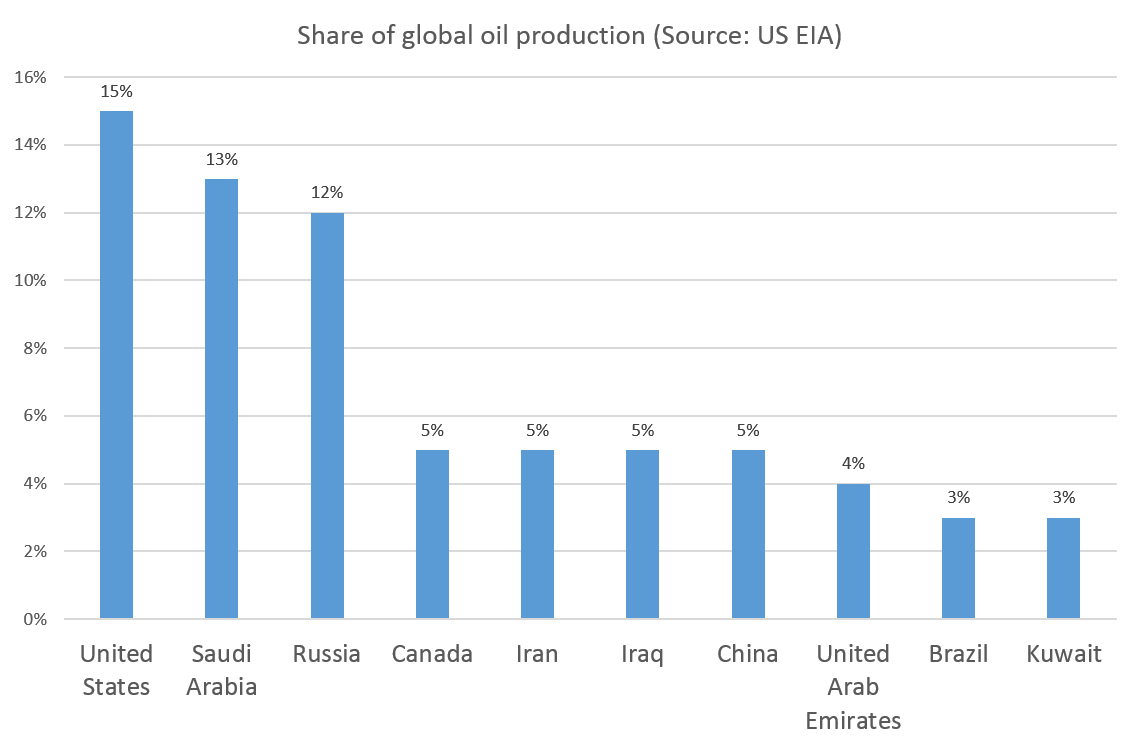Oil prices headed upward more rapidly this week, hitting $68 per barrel (WTI), which is the highest price since December 2014.

Even if adjusted for inflation (according to the CPI), oil prices are still near a four-year high.

Trump took to Twitter this week to attempt to blame OPEC for the high prices, stating “Looks like OPEC is at it again. With record amounts of Oil all over the place, including the fully loaded ships at sea, Oil prices are artificially Very High! No good and will not be accepted!”
While OPEC can no doubt take some credit for pushing down production totals, Trump had best look in the mirror if we wants to find another major contributor to the recent rise in prices.
After all, prices haven’t exactly been helped downward by the Trump administration’s continued promises of ongoing military action in the region. Although Syria is not an oil exporter, interventions that threaten to destabilize the region further aren’t a boon for consumers of oil.
Essentially, what we have now is a president who is threatening a war in the Middle East, a trade war with China, and new sanctions against Iran.
An additional potential threat lies with Washington’s habit of imposing and expanding sanctions on Russia. As Julian Lee at Bloomberg notes:
President Donald Trump already has Iran in his sights. The clock is ticking -- May 12 is the deadline for him to extend the waiver on sanctions that are suspended by the nuclear deal.
More recently he has turned up pressure on Moscow with a new raft of sanctions aimed at individuals and companies close to President Vladimir Putin.
In December, Russia — which is not a member of OPEC — had reached a deal with OPEC to limit its own production to keep prices up. Faced with uncertainly surrounding sanctions, it seems, Russia is now saying it will keep its options open when it comes to production.
But even if Russia wants to expand production, US sanctions may limit this ability since Russia needs capital to keep production going, and “[d]ue to sanctions and the inability for Russian energy companies to obtain funding in U.S. dollars, Russia often has to turn elsewhere for backing, including costlier Chinese funding.”
That could impact total production, and thus drive prices up further.
Given that Russia vies with Saudi Arabia and the US to be the world’s top oil producer — It was number 3 in 2017 according to the EIA — policies that lead to cuts in Russian production will lead to higher global prices, all else being equal.
In 2017, Russia provided 12 percent of global production, and Iran is an additional 5 percent.

If Trump were truly concerned about oil prices, he’d brush off continued efforts by Washington interventionists searching for yet more ways to isolate and limit trade with Iran and Russia.
Moreover, openness toward oil-exporting states is all the more important since “[g]lobal oil supply has already been tightened by the OPEC-led supply cuts, and boosted by the collapse in Venezuelan output and drop in Mexican production. The group is nearing ”mission accomplished” in draining excess oil inventories.”
In other words, if US policy succeeds in limiting production in any countries outside of OPEC — such as Russia — that’s only helping OPEC.
As Ellen Wald at Forbes wisely suggested, though, Trump’s blaming of OPEC for high prices is a savvy political move since the average America — who knows next to nothing about US sanctions, falling Mexican production, or the situation in Iran — will now associate pain at the pump with OPEC.
We already know that blaming foreigners is a winning political strategy — as with the current brewing trade war against China — so this tactic may work nicely also.


